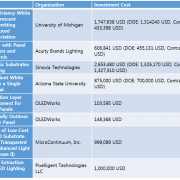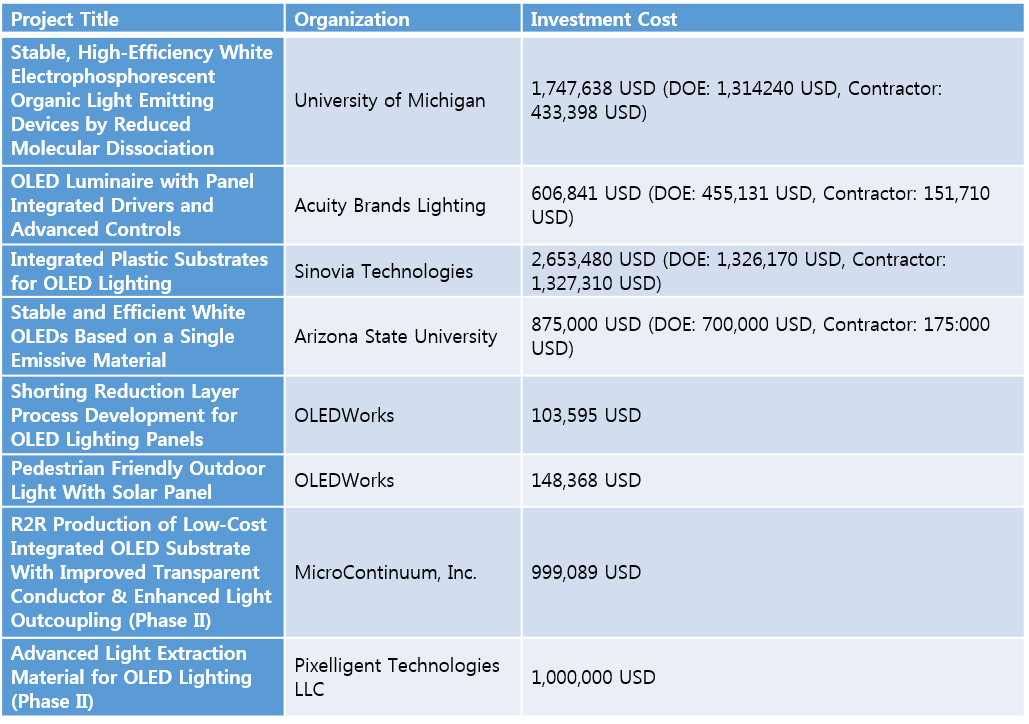DOE Selects 4 OLED Projects for 2015 SSL R&D Lighting Awards
Earlier this month U.S. Department of Energy (DoE) announced 2015 Solid-State Lighting (SSL) Program awards. This is a part of DoE initiative to accelerate the adoption of SSL technology and focuses on developing an energy-efficient, full spectrum, white light source for general illumination. Through SSL technology, DoE hopes to reduce U.S. lighting energy usage and contribute to climate change solutions.
For 2015 SSL Program awards, 9 projects were selected and of these 4 were OLED projects. Acuity Brands, Arizona State University, Sinovia Technologies, and University of Michigan received a total of approximately US$3,800,000.
Acuity Brands received US$ 455,131 to develop an OLED luminaire that features DC current drivers integrated with each panel, and a base station that interfaces with user control input, provides power to the OLED panels, and translates the control input to desired functionalities of the panels.
Arizona State University received US$ 700,000 to focus on developing an efficient and stable phosphorescent material, quick-screening it, and incorporating it into a state-of-the-art OLED.
Sinovia Technologies received US$ 1,326,170 to combine a barrier film technology with a nanowire transparent conduction film to make a single substrate product that will improve light extraction and lower the cost of OLEDs.
US$ 1,314,240 was awarded to University of Michigan to focus on new strategies for increasing the lifetime of blue phosphorescent OLEDs (PHOLEDs).
Additionally, DoE selected 4 OLED lighting projects earlier this year through SBIR-STTR Grants (Small Business Innovation Research to OLEDWorks, MicroContinuum, and Pixelligent Technologies, and awarded approx. US$ 2,250,000 in total. This brings the total amount so far that DoE invested in OLED lighting projects in 2015 to approx. US$ 6,000,000, which is an increase of about US$ 1,600,000 from 2014.






